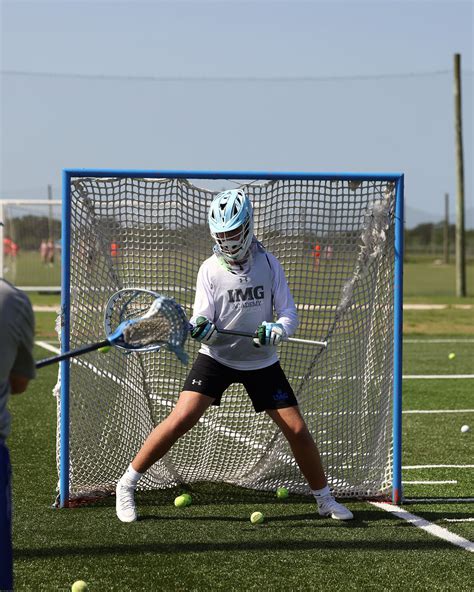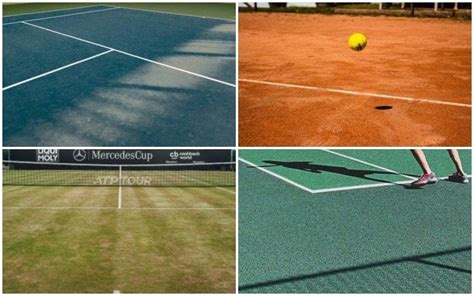Explore the significance of lacrosse tournaments for player development, essential skills needed, strategies, training, and mental preparation for success.Lacrosse tournaments are pivotal events in the journey of aspiring athletes, providing a platform for skill development, teamwork, and competitive spirit. As players gear up for these high-stakes competitions, understanding the nuances of preparation becomes crucial. From honing essential skills to crafting effective team strategies, each aspect plays a vital role in achieving success on the field. Additionally, physical conditioning and mental resilience are integral components that can make or break a player’s performance during these tournaments. In this article, we will explore the significance of lacrosse tournaments in player development and offer practical insights to help individuals and teams excel in their competitive endeavors. Whether you’re a player, coach, or parent, this guide lays the groundwork for preparation, ensuring that every participant is ready to embrace the challenges that lie ahead.
Understanding The Importance Of Lacrosse Tournaments In Player Development
Lacrosse tournaments play a crucial role in the overall development of players, offering an array of benefits that extend beyond the confines of regular practice sessions. These competitive events provide players with the opportunity to experience high-pressure environments where they can hone their skills, strengthen their teamwork, and gather valuable game-time experience.
One of the primary advantages of participating in lacrosse tournaments is the exposure to varied playing styles. When teams come together from different regions, players encounter unique tactics and strategies that can challenge their adaptability and enhance their understanding of the game. This exposure is instrumental in fostering versatility in individual players, preparing them for potential college-level competition or even professional levels.
Moreover, lacrosse tournaments serve as an excellent platform for player evaluation. Coaches can observe how athletes perform under pressure and in collaboration with one another. This assessment can help in identifying strengths and areas for improvement that are not always evident in practice scenarios. Consequently, these tournaments can guide future training focuses, ensuring players continue to develop and refine their skills effectively.
Beyond skill development, lacrosse tournaments also nurture important life skills such as sportsmanship, resilience, and effective communication. Players learn to handle wins and losses with grace while developing a strong mental fortitude that is essential both on and off the field. Additionally, the bonding that occurs during these tournaments can create lasting friendships and a sense of camaraderie among teammates, enhancing their overall experience in the sport.
Participating in lacrosse tournaments is vital for fostering holistic player development. From skill enhancement and exposure to diverse playing styles to the cultivation of essential life skills, these competitions are integral to the growth of young athletes. Embracing the challenges presented at these events will undoubtedly contribute to the players’ success in lacrosse and beyond.
Essential Skills To Focus On For Successful Lacrosse Tournaments
To excel in Lacrosse Tournaments, players must hone a variety of essential skills that contribute to both individual and team success. Focusing on these skills ensures that athletes are well-prepared to face competition and apply their training effectively on the field.
| Skill | Description | Importance |
|---|---|---|
| Stick Handling | The ability to control the ball with the lacrosse stick, including passing, catching, and shooting. | Crucial for maintaining possession and executing plays. |
| Field Awareness | Understanding positioning and awareness of teammates and opponents on the field. | Enhances decision-making and strategic plays. |
| Defensive Skills | Techniques such as checking, positioning, and body movement to defend against opponents. | Essential for preventing opponent scoring opportunities. |
| Team Communication | Effective verbal and non-verbal communication among teammates during the game. | Improves teamwork and coordination, leading to better game execution. |
| Endurance and Agility | The ability to maintain high energy levels and perform quick movements. | Increases overall performance throughout the tournament duration. |
By focusing on these key skills, players can improve their performance in Lacrosse Tournaments and ultimately contribute to their team’s success. Continuous practice and dedication to skill development during training sessions can make a significant difference on game day.
How To Create A Winning Team Strategy For Lacrosse Tournaments
Developing a successful team strategy for Lacrosse Tournaments requires careful consideration of various elements that can influence performance. A well-thought-out strategy not only enhances team cohesion but also maximizes individual strengths. Here are key components to consider when crafting an effective game plan:
- Analyze Opponents: Study the strengths and weaknesses of opponents by reviewing past games. Understanding their play style allows you to anticipate their moves and prepare counter-strategies.
- Define Roles: Assign specific roles to each player based on their skills and capabilities. Clear responsibilities foster accountability and enhance team dynamics.
- Develop Core Plays: Establish a set of core plays that the team can execute seamlessly. Focus on a mix of offensive and defensive tactics tailored to your players’ proficiencies.
- Practice Communication: Encourage open lines of communication on the field. Effective communication ensures that players are aware of each other’s positions, intentions, and movements.
- Adaptability: Be prepared to adjust your strategy based on game flow and opponent tactics. Flexibility can be a deciding factor during high-stakes moments in Lacrosse Tournaments.
- Build Team Chemistry: Foster a positive team environment through bonding activities and practices. Strong interpersonal relationships on the team can enhance cooperation and support during games.
A winning strategy for Lacrosse Tournaments is not just about tactics; it’s about nurturing a mindset focused on growth, collaboration, and resilience. By prioritizing these key aspects, your team will be better prepared to face the challenges of competition.
Incorporating Conditioning And Training For Lacrosse Tournaments
To excel in Lacrosse Tournaments, it is essential to incorporate a comprehensive conditioning and training regimen. Structured training not only enhances individual skills but also contributes to overall team performance. Here are some key aspects to focus on:
1. Endurance Training: Lacrosse requires players to have excellent stamina due to its high-paced nature. Incorporating running drills, interval training, and longer distance runs can help build the cardiovascular endurance needed to withstand intense game play.
2. Strength Training: Strength training improves power and stability, vital for offensive and defensive maneuvers. Focus on exercises that target the core, legs, and upper body. Incorporate movements like squats, deadlifts, and lunges as part of your strength training routine to enhance physical strength.
3. Agility Drills: Fast changes in direction and quick footwork are crucial in lacrosse. Implement agility drills such as ladder exercises, cone drills, and shuttle runs. These help improve your reaction time and overall agility, allowing you to navigate quickly during matches.
4. Skill-Specific Practice: Design practice sessions that focus on essential lacrosse skills, like passing, shooting, and checking. Incorporating scrimmages that simulate tournament conditions will help players adapt to the pressure of actual games.
| Training Category | Focus Areas | Examples |
|---|---|---|
| Endurance | Stamina, cardiovascular fitness | Interval training, long-distance runs |
| Strength | Power, muscle endurance | Squats, deadlifts, lunges |
| Agility | Speed, reaction time | Ladder drills, cone drills |
| Skills | Passing, shooting, defense | Target practice, controlled scrimmages |
5. Recovery and Injury Prevention: Emphasizing recovery time and injury prevention strategies is crucial. Encourage players to engage in stretching, foam rolling, and proper nutrition to support muscle recovery and reduce the risk of injury.
By integrating these vital aspects of conditioning and training into your preparation, players will not only enhance their individual abilities but also improve team dynamics and performance in Lacrosse Tournaments.
Preparing Mentally For The Challenges Of Lacrosse Tournaments
Competing in Lacrosse Tournaments: can be as much a mental challenge as it is a physical one. To thrive in a tournament environment, players must develop a strong mental game alongside their physical training. Here are several strategies to help players prepare mentally for the challenges they may encounter during tournaments.
1. Visualization Techniques
Encourage players to practice visualization, where they mentally rehearse performing well in various game scenarios. This exercise helps them build confidence and reduces anxiety by familiarizing them with potential game situations.
2. Goal Setting
Establish achievable goals for the tournament. These can include personal performance objectives, such as improved passing accuracy or defensive maneuvers, as well as team-based goals, such as communication and teamwork. Setting clear, actionable goals can enhance focus and provide motivation.
3. Positive Self-Talk
Teach players to cultivate positive self-talk to combat negative thoughts or pre-game jitters. Phrases like I am prepared, or I trust my skills can boost confidence and resilience during high-pressure situations.
4. Mindfulness and Breathing Exercises
Incorporate mindfulness practices and breathing exercises into training routines. Techniques such as deep breathing can help players stay calm and focused, particularly during tense moments in a game.
5. Embracing the Challenge
Help players adopt a mindset that views challenges as opportunities for growth. Emphasizing the importance of resilience and adaptability can empower them to approach each game with a positive outlook, regardless of the outcome.
By prioritizing mental preparation alongside physical training, players can navigate the various pressures of Lacrosse Tournaments: more effectively and enhance their overall performance on the field.
Frequently Asked Questions
What should teams consider when selecting a lacrosse tournament?
Teams should consider factors such as location, level of competition, tournament format, and the availability of a suitable venue.
How can athletes effectively prepare for a lacrosse tournament?
Athletes can prepare by following a structured training regimen, practicing specific skills, maintaining their physical fitness, and reviewing game strategies.
What role does team chemistry play in lacrosse competitions?
Team chemistry is crucial as it enhances communication, coordination, and mutual trust among players, which are essential elements for success on the field.
Why is nutrition important for players leading up to a tournament?
Proper nutrition fuels athletes, aids in recovery, and enhances overall performance, making it vital for optimal functioning during competitive play.
How can coaches support their teams during tournament preparation?
Coaches can support teams by providing clear strategies, creating practice schedules, encouraging team bonding, and ensuring players’ mental readiness.
What should players do on the day of the tournament to ensure peak performance?
On the tournament day, players should arrive early, stay hydrated, warm up properly, maintain a positive mindset, and focus on their game plan.
How do tournament experiences contribute to player development?
Tournament experiences provide players with exposure to higher levels of competition, challenges that enhance their skills, and opportunities to learn from both wins and losses.









